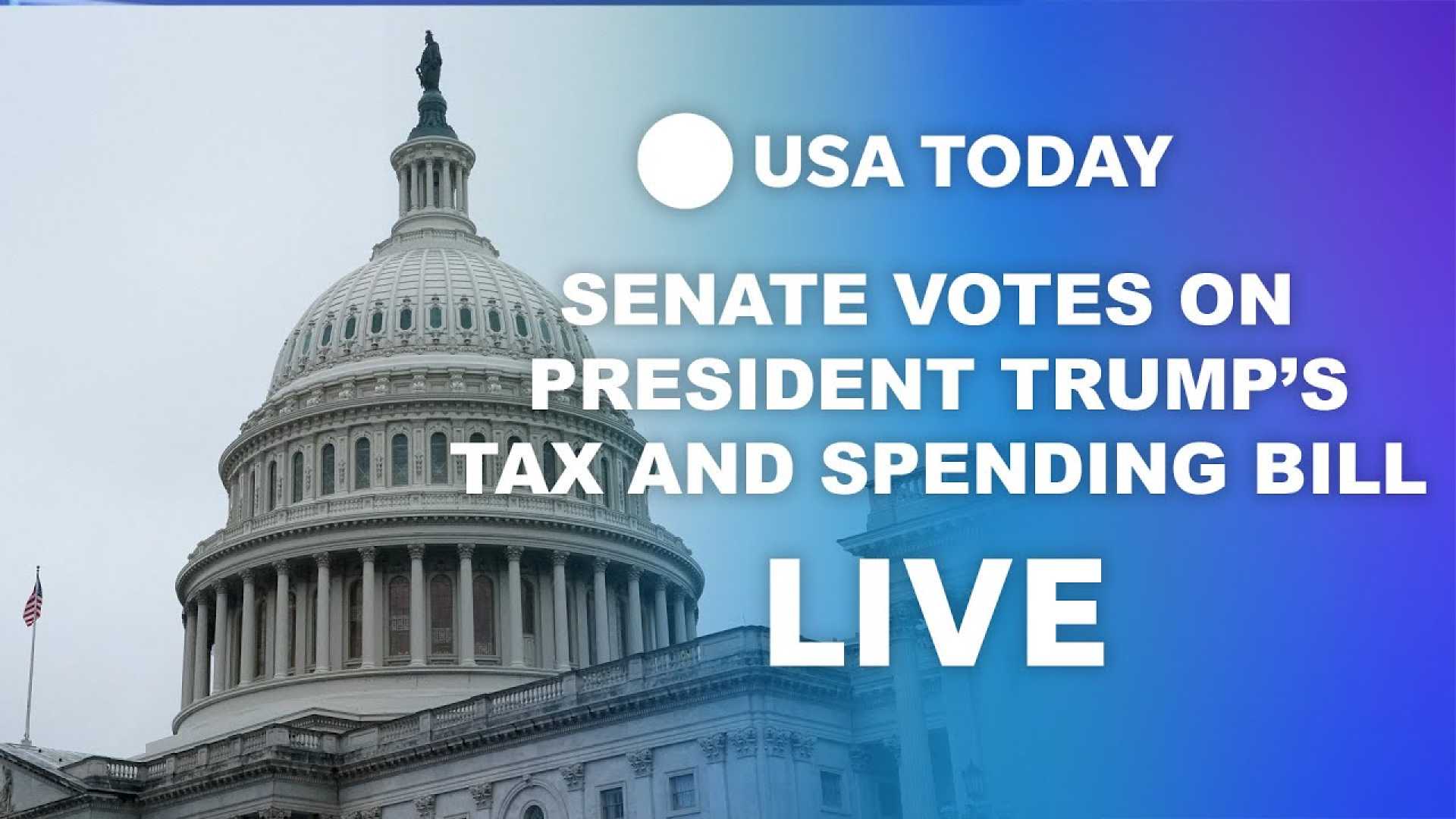Politics
Senate Faces Struggles in Passing Trump’s Controversial Legislation

Washington, D.C. — The future of President Trump‘s “big, beautiful bill” remains in limbo as the Senate engages in a lengthy vote-a-rama to consider numerous amendments before reaching a final vote on the proposed tax and spending cuts. The voting began Monday morning, and progress has been slow, with only 14 roll call votes completed in about seven hours.
Senators started voting just after 9:30 a.m., with limited urgency from Republican leaders to expedite the process. According to The Washington Post‘s Paul Kane, the Senate might not finalize the bill until 5:30 a.m. Tuesday if they continue at this pace. GOP leaders express concerns about unifying their ranks amidst divisions on key issues.
During the extended legislative process, Democrats protested by compelling the reading of the nearly 1,000-page text, a process that lasted nearly 16 hours. This delay showcases the Democrats’ strong opposition to the bill, particularly criticizing its substantial cuts to Medicaid and food aid programs.
One significant issue is the Senate’s decision to adopt a “current policy” baseline for the bill, which means nearly $4 trillion in extended tax cuts would be considered without cost implications. This decision has drawn ire from Democrats, who claim it creates a pathway for enduring budget deficits. Senator Ron Wyden labeled these figures as misleading.
In another setback for the Republicans, Senator Thom Tillis of North Carolina, who previously voted against the bill, highlighted concerns over Medicaid cuts. He warned the GOP against making a significant healthcare error. Some in the GOP, including Senator Rick Scott of Florida, advocate for alterations to Medicaid that could cost an additional $313 billion and jeopardize coverage for millions.
Moreover, the revised Senate bill proposes cutting tax incentives for wind and solar energy, which has alarmed industry leaders. Various Republican senators are attempting to restore previous incentives amid fears of detrimental impacts on energy security and rising consumer prices.
The White House is pushing Congress to finalize the legislation by July 4, but uncertainty looms, especially with Senators Tillis and Rand Paul firmly opposed.
According to the Congressional Budget Office (CBO), the Senate’s bill could contribute at least $3.3 trillion to budget deficits over the next decade, alongside drastic cuts to healthcare funding projected to affect 11.8 million people by 2034.
As negotiations continue, the fate of the One Big Beautiful Bill Act, aimed at enacting critical elements of Trump’s domestic agenda, hangs in the balance.












